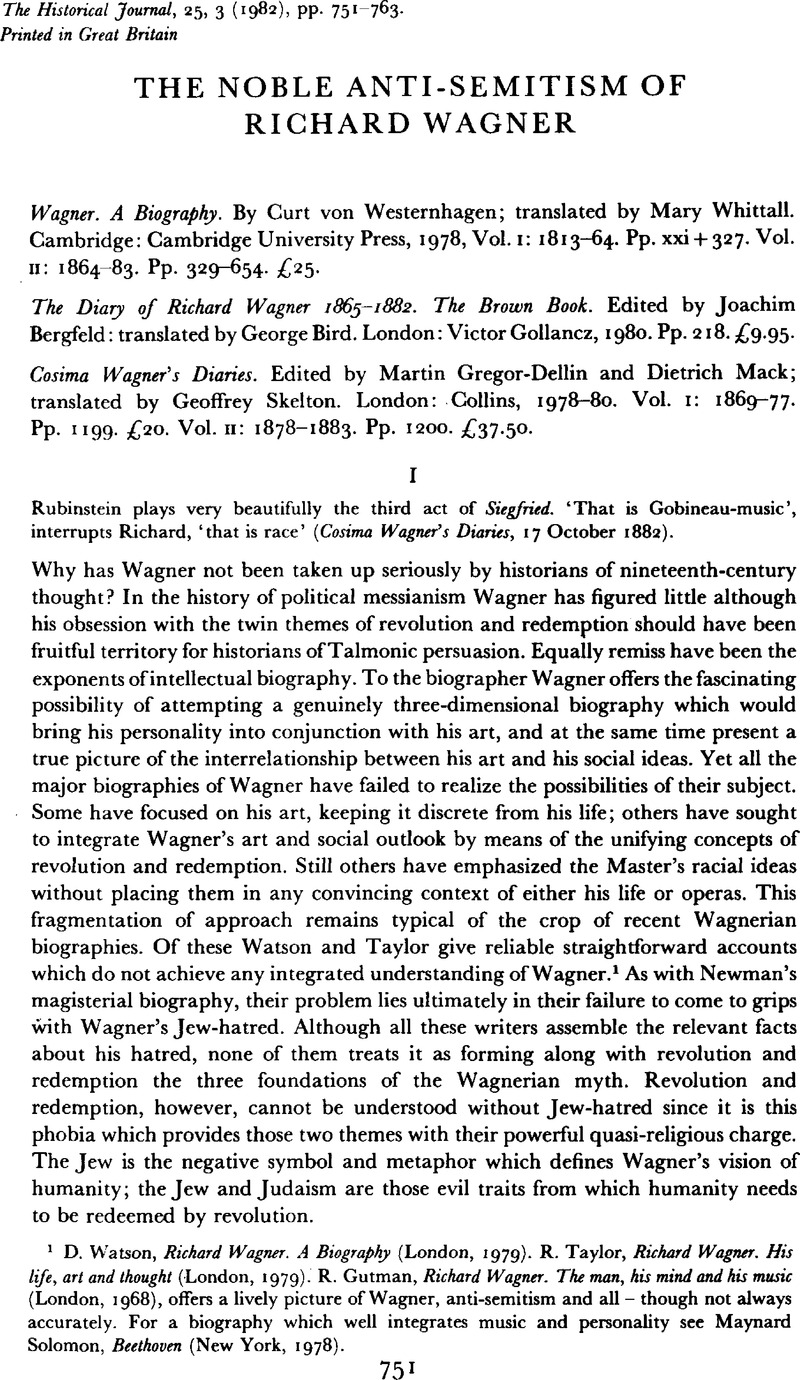Article contents
The Noble Anti-Semitism Of Richard Wagner
Published online by Cambridge University Press: 11 February 2009
Abstract

- Type
- Review Articles
- Information
- Copyright
- Copyright © Cambridge University Press 1982
References
1 Watson, D., Richard Wagner. A Biography (London, 1979)Google Scholar. Taylor, R., Richard Wagner. His life, art and thought (London, 1979)Google Scholar. Gutman, R., Richard Wagner. The man, his mind and his music (London, 1968)Google Scholar, offers a lively picture of Wagner, anti-semitism and all - though not always accurately. For a biography which well integrates music and personality see Solomon, Maynard, Beethoven (New York, 1978).Google Scholar
2 Westernhagen is similarly mealy-mouthed about Judaism in music in his article in The New Grove dictionary of music and musicians (London, 1980), xx, 111–12.Google Scholar
3 Some additional Annalen for 1864–8 appear in M. Gregor-Dellin’s new edition of the autobiography, Mein Leben (Munich, 1976), pp. 757–69.Google Scholar
4 In the present paper I have used my own translations for the most part.
5 Carlebach, J., Karl Marx and the radical critique of Judaism (London, 1978), gives a useful account of the critical approach of the Young Hegelians to which one might apply the remark that ‘the Higher Criticism is the Lower Anti-semitism’.Google Scholar
6 For this revised dating see my ‘Wagner’s Conversion to Anti-semitism’, to appear in Romantic Nationalism (Humanities Research Centre, ANU, Canberra).Google Scholar
7 On this see my ‘Hitler’s Wagnerian religion’, Quadrant (July, 1980), pp. 40–4.Google Scholar
8 Gay, P., Freud, Jews and other Germans (New York, 1978), pp. 188–230.Google Scholar
9 Misdated by Westernhagen, p. 438, to June and by the editor of The brown book, p. 192, to May.
10 No mention of these Olympian judgements on Tausig’s Jewishness is made in the public tombstone inscription which Wagner wrote in 1872, quoted in Westernhagen, p. 438, and The brown book, p. 192.
11 The German syntax here is obscurely elliptical but the message is plain.
12 Curiously enough the letter to Foerster has disappeared from sight.
13 According to Cosima the whole affair distressed Wagner but did at least spur him to complete his major racial essay Heroism and Christianity, the sequel to Know thyself.
14 Rauschning, H., Hitler speaks (London, 1939), pp. 104 f.Google Scholar
- 1
- Cited by


